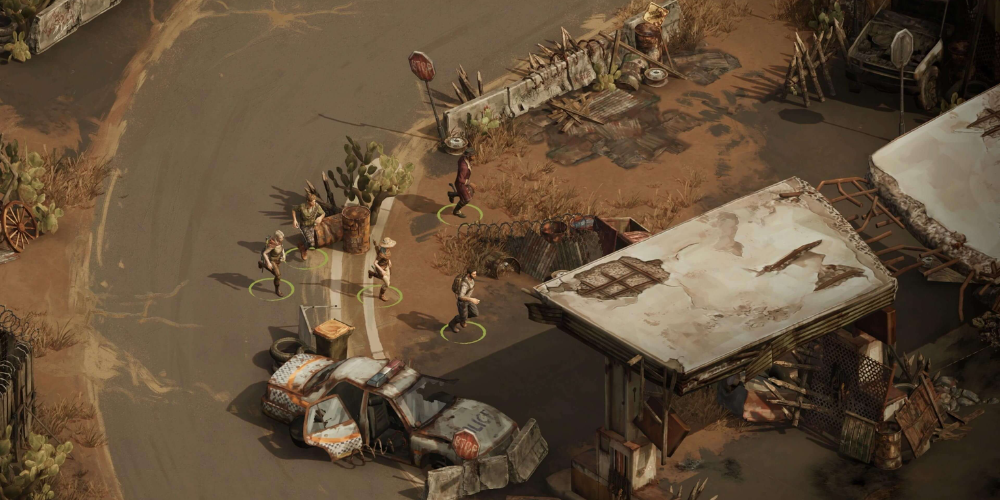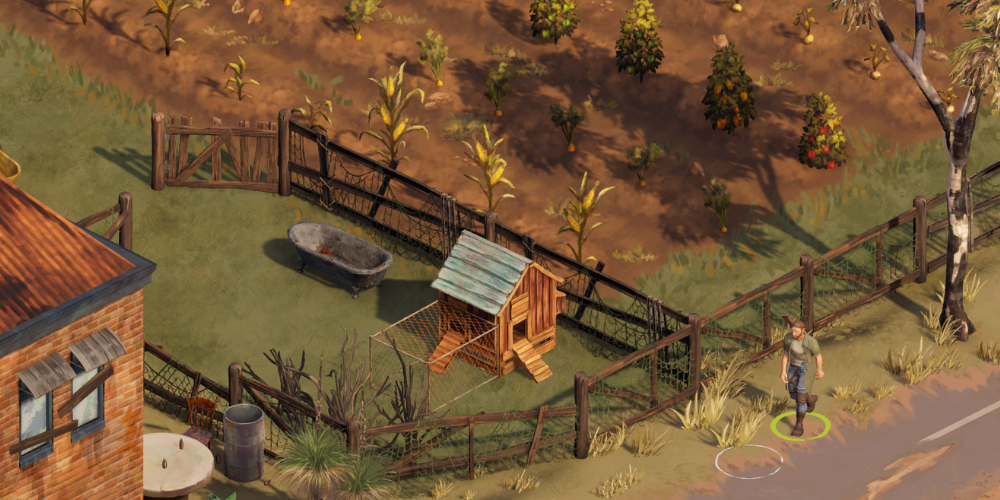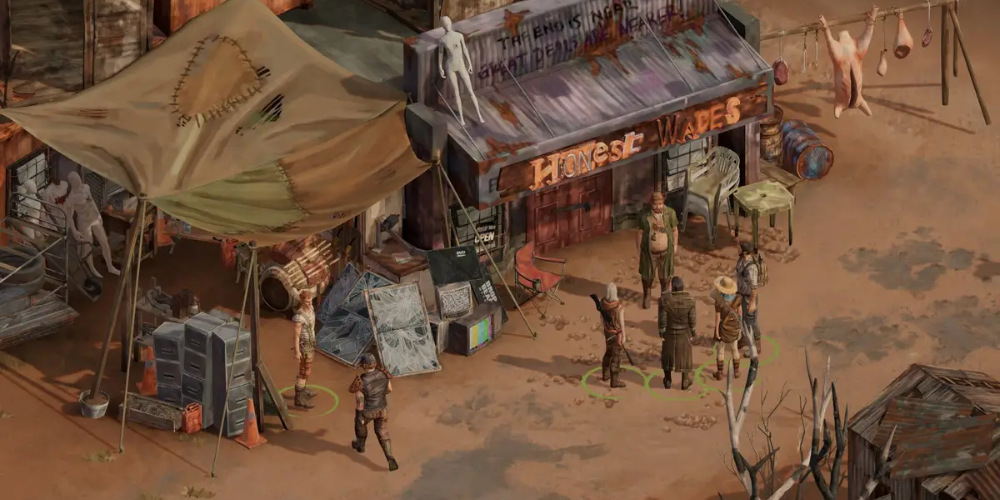Navigating Ethical Dilemmas and Societal Rebirth in Australia's Post-Apocalyptic Wasteland
- 2024-07-17
- 0 Comments

In a post-apocalyptic wasteland, the primary concerns center around survival. Yet, in the barren, radiation-scorched landscape of Broken Roads, the remnants of society need to rethink and rebuild their systems anew. With a staggering 80% of Australia's population eradicated, the scenario prompts unique ethical and organizational questions. In Drop Bear Bytes' Antipodean CRPG, philosophical ethics shape your journey as much as combat skills do. Here, your decisions influence how you navigate this harsh new world, interacting with various settlements that all tout different methods for survival.
Forming New Societies
Your adventure begins tragically as the fledgling community that recently took you in is obliterated. Attacked and largely destroyed, it's your mission to find a new sanctuary for the survivors, all while seeking retribution for the losses suffered. Along the way, you'll encounter various settlements, each experimenting with different governance styles, including indentured servitude and back-to-nature movements. The diversity in societal frameworks provides a rich tapestry for exploration. You meet locals, undertake tasks to further your cause, and uncover the moral compromises these communities endure to sustain themselves.

As for your own moral decisions, they're depicted through a moral compass featuring four quadrants: utilitarianism, humanism, Machiavellianism, and nihilism. Adhering strictly to one school of thought narrows your options while unlocking new perks and choices aligned with your ideology.
Complex Ethical Landscape
The ethical complexities manifest immediately, testing your convictions against harsh realities. The moral compass shapes gameplay, showing how even a well-intentioned path can lead to unexpected and sometimes grim outcomes. With the flexibility to act according to these schools of thought, you can navigate the ethical intricacies of the wasteland. Whether you choose to care for the greater good, prioritize individuals, look out for yourself, or remain indifferent, your philosophical alignment plays a crucial role.
Cultural Reflection
Broken Roads leans heavily into its Australian setting, differentiating it from the more familiar American post-apocalyptic scenarios. The game doesn't just add kangaroos and Aussie slang for flavor; it imbues the narrative and interactions with a uniquely Australian laid-back and sarcastic demeanor. This cultural layer enhances the storytelling, creating a sense of place that's simultaneously desolate and wryly humorous.
Despite occasional script overreaches—like the overly enthusiastic depiction of Australians' love for beer—the setting provides a distinct backdrop. The painterly visuals and mellow soundtrack add an unexpected beauty to the otherwise harsh environment, crafting a unique atmosphere for your journey.
Broken Systems

While Broken Roads offers plenty to appreciate, it falls short in system integration and execution. The game provides multiple ways to achieve goals through various relationships and quests, yet the coherence of these paths often falters. Many in-game mechanics, like the trading system, are well-designed and engaging. Trading items across the wasteland's vast expanse can be gratifying, but the actual act of traveling is almost trivialized. Random ambushes are avoidable, reducing the peril one would expect from traversing a dangerous landscape.
Moral Compass Shortcomings
The moral compass, presented as a pivotal gameplay element, diminishes in significance as the game progresses. Early dialogue choices highlight the four main philosophies, but these options become less relevant later on. Moreover, perks unlocked by sticking to a particular worldview barely impact gameplay, rendering them negligible.
Combat and Gameplay Mechanics
Combat in Broken Roads follows a turn-based system utilizing action and movement points. While the skirmishes are functional, they are marred by glitches and limited enemy tactics. Some battles end inconsistently, with enemies frozen mid-combat, and the game’s interface could stand significant improvement.
Quest Inconsistencies
Quest design also suffers from baffling missteps. Critical scenes often lack coherence, leaving players puzzled about key plot points. One glaring example includes a quest where, after obtaining medicine for a significant character, you find him unexpectedly executed, without any narrative clarification. Such logical gaps undermine the player's experience, transforming what could have been engaging storytelling into a series of confusing events.
Philosophical Conundrums and Gameplay Experience
Despite its ambition to explore societal constructs, Broken Roads frequently fails to synergize its philosophical elements with compelling gameplay. Your ethical leaning might shape some decisions initially, but the inconsistency and glitches dilute their impact, reducing the game's philosophical exploration to a mere backdrop. Instead of providing a platform to genuinely test ethical theories, the game often forces you to adopt a pragmatic approach, navigating a series of disjointed quests and occasional bugs.
In summary, while Broken Roads aims to blend philosophical reflection with RPG mechanics in a uniquely Australian setting, it ultimately stumbles in execution. Crafting societies and ethical systems that work well on paper, the game is hindered by practical flaws and inconsistencies. It showcases the complexities and challenges of philosophical applications in a survival scenario, but falls short of delivering a satisfying gameplay experience.






Leave a comment